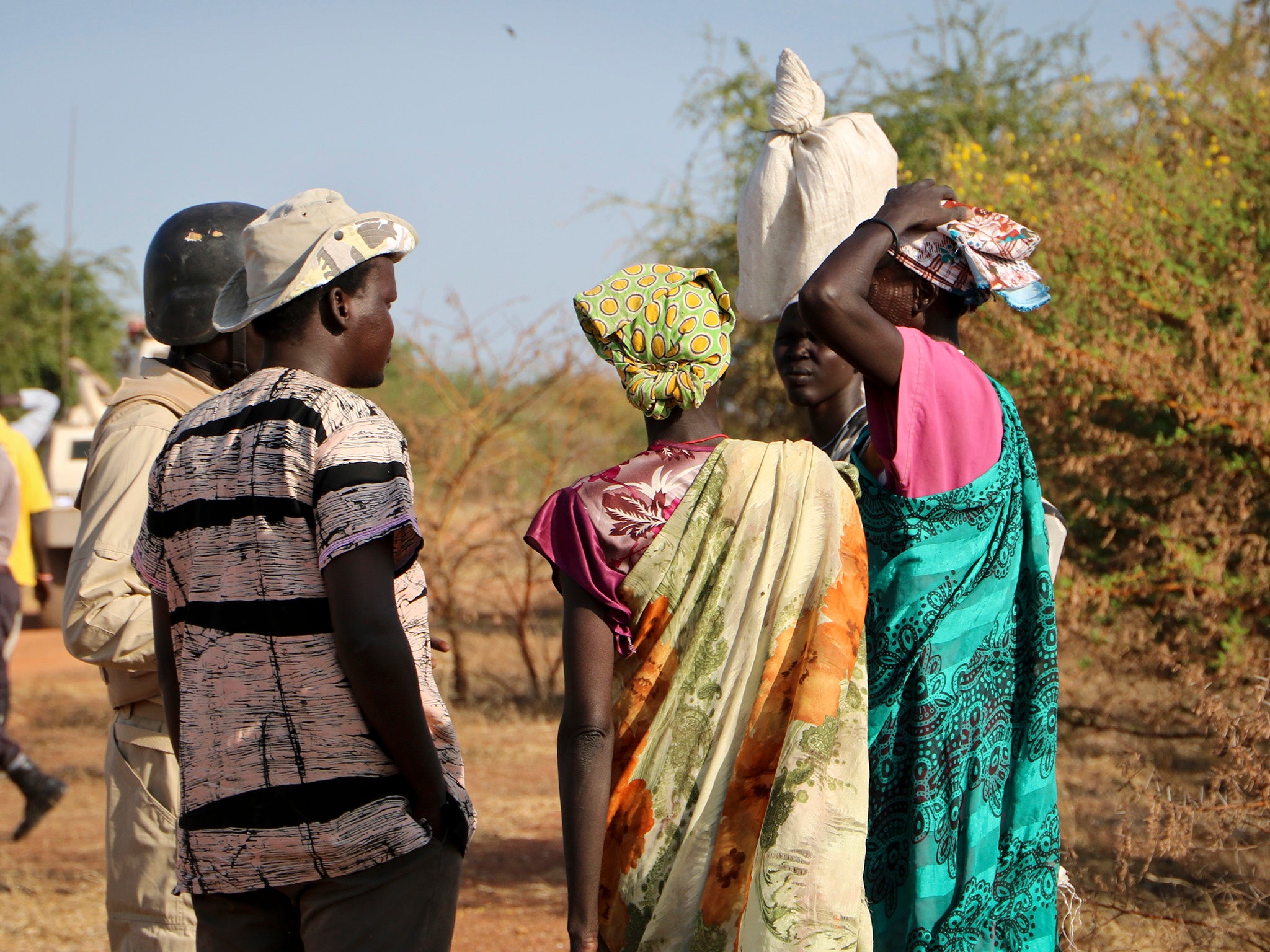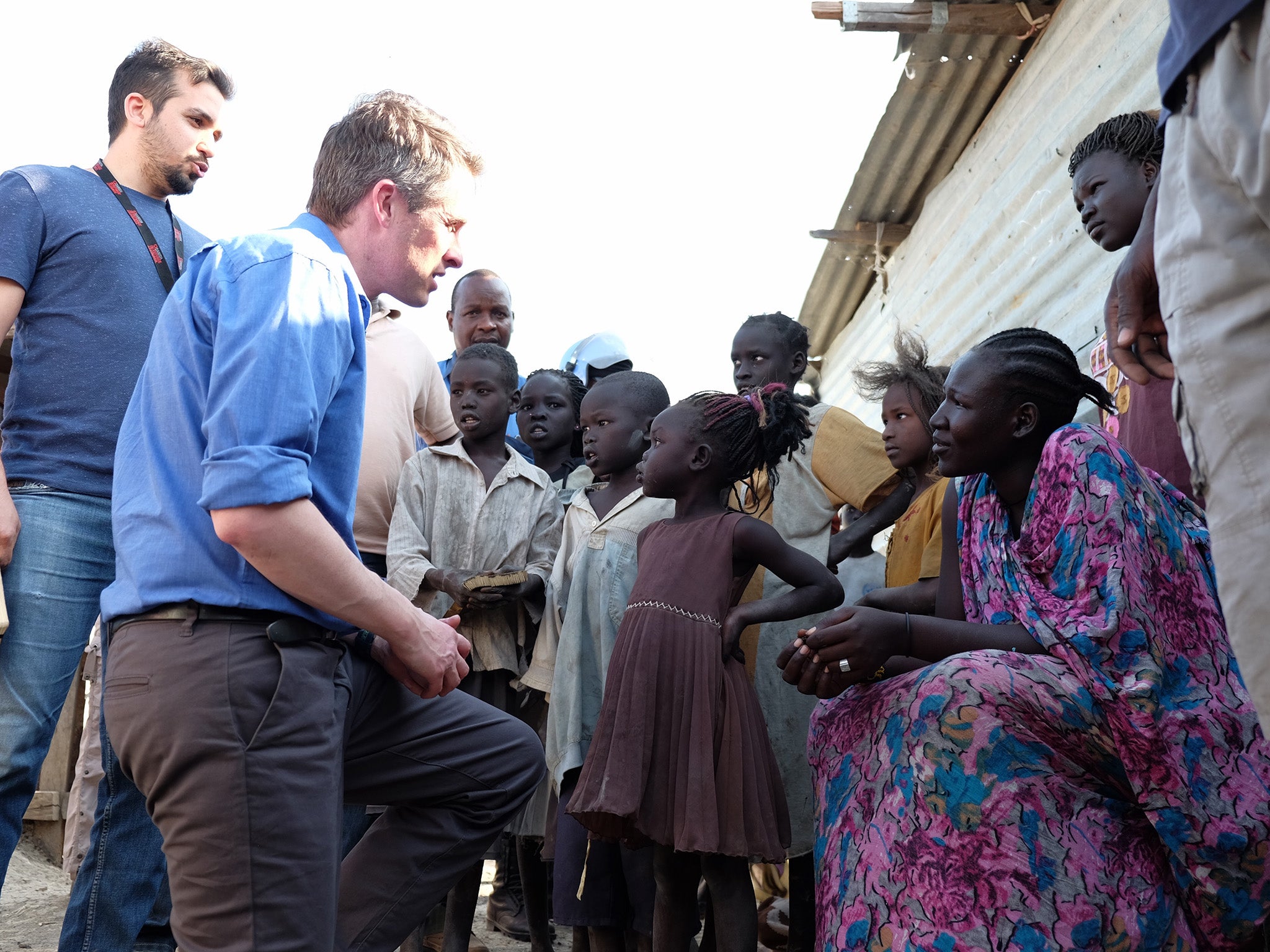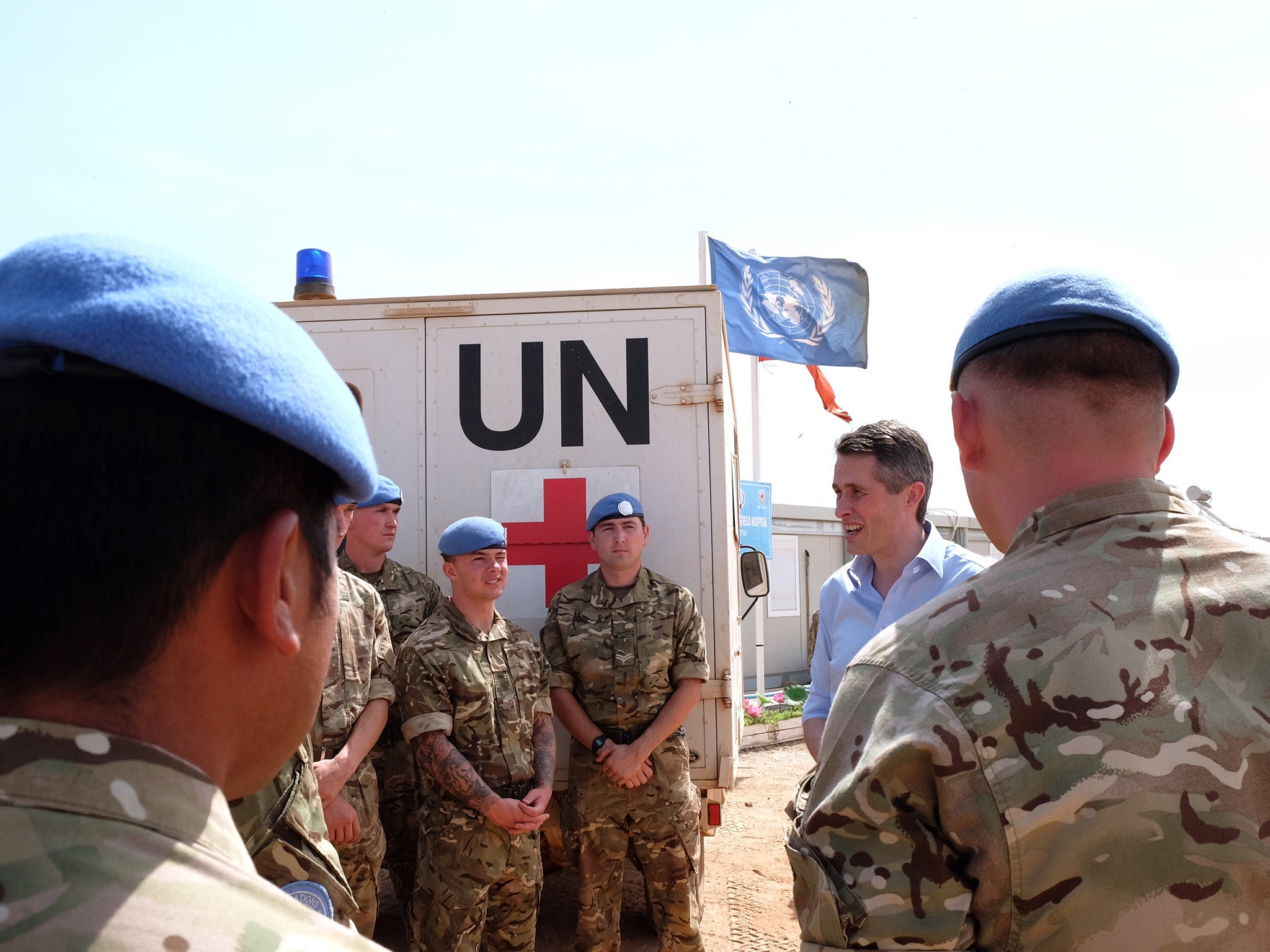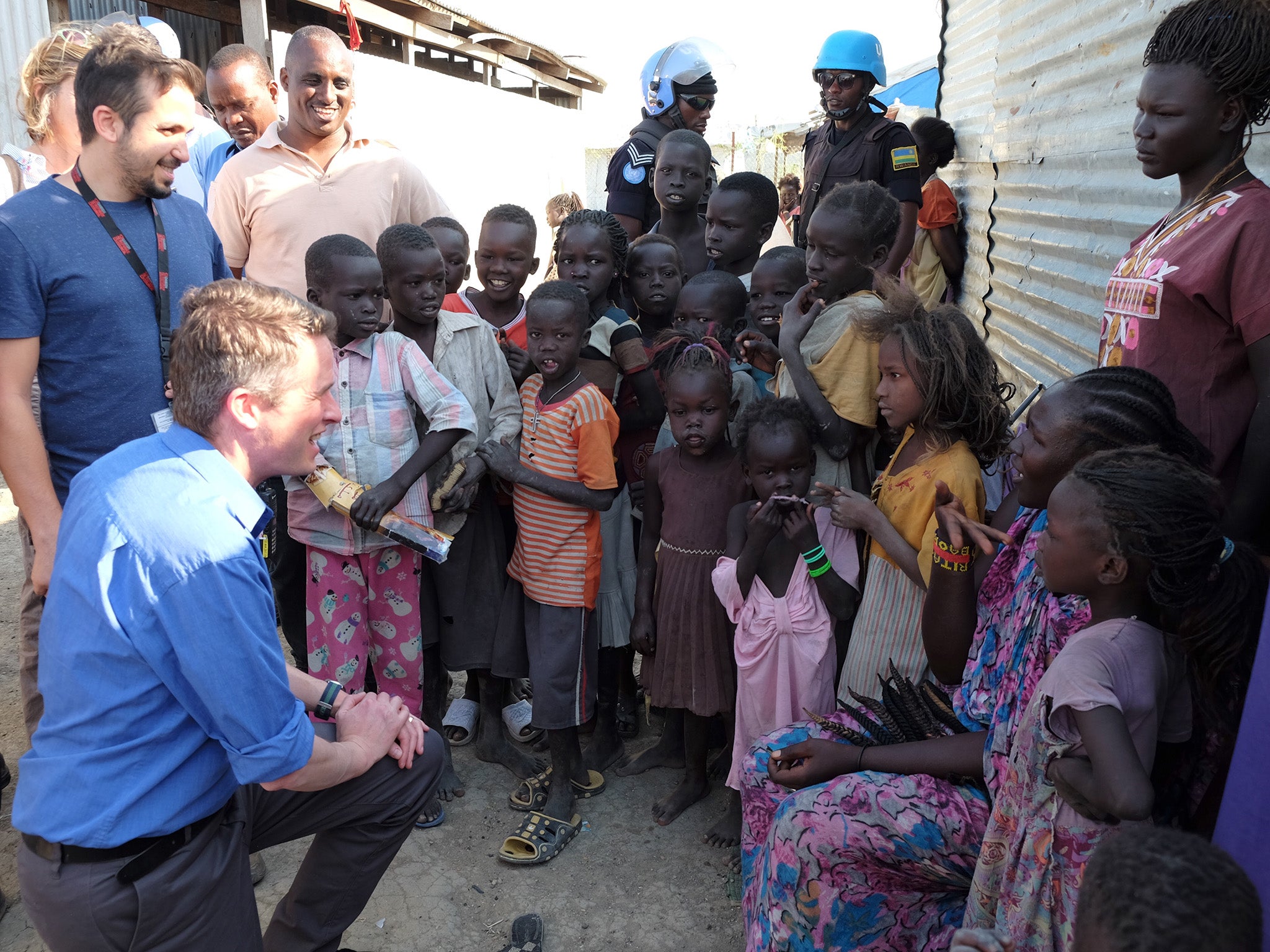‘We are the ones who are made to suffer’: South Sudan sees ‘shocking’ number of women and girls raped in continuing civil war
Sexual violence as a weapon of war is ‘endemic’ in country since conflict broke out three years ago, UN representative says

“We fetch the water, we fetch the food, we fetch the firewood, and we get attacked when we are doing that, we are shown no mercy,” Dominica reflected. “It is the men who start the fighting and we live with the damage, I don’t know if that will ever change”.
The 49-year-old mother of six children was speaking at a refugee centre in one of the few “safe spaces” for women amid a conflict in South Sudan which has become particularly notorious for the shocking volume of sexual violence, with rape being used with seeming impunity as a weapon of war.
There is now another ceasefire in the civil war in Africa’s newest country, with the flickering hope that with a large international force in the country it brings the chance to end the bloodshed and abuse and offer a path to stability.
South Sudan, the size of France, with oil wealth and a population of around 12 million was deemed to have a prosperous future after seceding from Sudan in 2011. But civil war broke out two years later, fuelled by bitter political, tribal and regional enmity.
The president, Salva Kiir Mayardit, from the Dinka tribe, accused his deputy Riek Machar, a Nuer, and 10 other officials of plotting against him. More than 400,000 people have been killed in the often savage violence which followed while, according to the IMF, real income has halved since 2013 and inflation is currently at 300 per cent per annum.
A power sharing agreement is now in place and there is cautious optimism about the future. Indeed, there is some relish in the South Sudan government that it is Omar al Bashir, the Sudanese leader in Khartoum, the former rulers of the whole country, who finds his 30-year grip of power under threat from rising street protests.
But violence has not ended in South Sudan. On Saturday, the government said 19 people had been killed and eight others injured in an attack near the town of Goron which it blamed on the opposition National Salvation Front.
The strife continues to have impact on peoples’ lives. None of the dozen women sitting with 49-year-old Dominica at a camp in Malakal, the country’s second largest city, feel safe enough to go back to their homes.
“We fear what can happen, robberies, rapes and, anyway, not many of us have homes to go back to” said Dominica who counsels rape victims at the camp. Some residences have been taken over by families from rival clans. Others, like her own, have been looted and destroyed. Some places hold terrible memories. For Rita, another of the women present, her former home town is a reminder of how her sister drowned with seven of her children in a river while trying to escape a marauding gang of armed men.
This week the women met Gavin Williamson, the British defence secretary, who was visiting South Sudan. He has been vocal about countering violence against women in conflict zones, one of the core principles for the UK’s military.

Mr Williamson, who met President Kiir, was visiting British troops who are part of a UN mission in the country.
He said: “One of our key priorities is to focus on the wellbeing of women and children in South Sudan.
“Sexual violence in a conflict is abhorrent and it is the right and moral thing to try and stop it wherever possible. Standing up against such a terrible thing also helps towards controlling overall violence and bringing stability.
“I have raised the issue with President Kiir and he agrees that this is a problem which needs urgent and firm action.
“I have deep pride in the men and women of our armed forces and I know they want to make a difference. Preventing gender-based violence and helping the voices unheard, helping those of the victims to speak out, is doing just that.”
Rape has been a terrible factor in many wars. But there is recognition that it is an endemic problem in both Sudan and South Sudan.

Alain Noudeohou, the UN secretary general’s deputy special representative to South Sudan, who is from Gabon, observed: “I have served in a number of counties and heard about the issue with sexual violence even before I came here. Why is this the case? I think that is a very important question and needs to be looked at.”
There was, however, a reminder how victims range across gender and age in the conflict and conditions they create. A 15-year-old youth hanged himself in the camp during Mr Williamson’s visit, the fourth suicide there in the past five weeks.
“We tend to get them in the weeks around Christmas” said Mahmud Amar Naief, one of the aid workers. “Some people tend to get depressed in these places at that time.”
Sara, one of the women explained: “Members of this boy’s family had died. He didn’t have any money, he had no school to go to, he had been telling people that there was nothing for him in the future.”
Mr Williamson visited a makeshift workshop where Dominica and the other women produced clothing using a set of old Singer sewing machines. Many of the scarves, blouses and dresses, in vivid colours, had elaborate, intricate hand stitching.
They were sold at the camp market. “ We don’t get much money for them, people here haven’t got much as you can see, we can get more money outside this place,” said a 32-year-old woman who is looking after four young children.
Her husband did not return from tending his fields a year ago, killed, she believes, by a clan of nomadic herders who had taken over the land, their traditional confrontation with farmers yet another source of feuds in Sudan’s troubled history.
But travelling outside the centre presented danger for the women. It is on the roads, on secluded patches early in the morning and evening where they are particularly vulnerable to the sexual predators.
The woman knew of those who had been prey, including, she said, a friend. But the young woman could not discuss whether anything had ever happened to her. The organisation which ran the shelter, International Medicine Corps (IMC), its officials said, believe that recounting such experiences would re-traumatise the victims. Not all the residents agree with the policy. “It is men who stop us from speaking out” said one woman.
One of the most recent attacks had taken place in November when 125 girls and women, aged between eight and 80, were beaten, robbed and raped on a road near the northern town of Bentiu over a 10-day period.
“They were after everyone, young and old, even pregnant women were not spared from these brutal attacks,” said Ruth Okello, a midwife from Medecins Sans Frontieres (MSF) the aid agency which first alerted about the abuse.
The women had been whipped and beaten with rifle butts by men in uniform. The Bentiu area in Northern Liech state is under control of government forces. They denied involvement and the state administration insisted such attacks could not have taken place.

The minister for information, Lam Tungwar, said: “A rape of such a magnitude is not true. We are a state that respects human rights and women’s rights top our list.”
There is now official admission that an attack did take place and an investigation is underway. The women had been walking the road to get from Bentiu to Nhialdiu, a distance of 60km, where the UN’s World Food Programme (WFP) was carrying out aid distribution.
The distribution could not take place in Bentiu because the narrow road, pitted with potholes, could not be used by the WFP’s vehicles. The route was also flanked by bushes and trees and the cover had been used by the gangs of men to carry out ambushes.
A British military unit, part of the UN Mission to Sudan (UNMISS) undertook to clear the road after reports of the rapes emerged.
The commanding officer, 37-year-old Major Alanda Scott, of the Royal Engineers, said: “What happened was appalling, it was terrible. These women had been forced to walk the road to get food, they have been watched by the men who then carried out the attack.
“Unfortunately it is the case that gender-based sexual violence has been used, as we know, in Sudan as a weapon of war. On this occasion we could do something to help and we were very glad to do so.”
The work was carried out in under a week by a team under Lieutenant Jason D’Souza. “UNMISS is here to help the local people and we are very glad to be part of it,” he said.
“But with this road one can directly see the effect it has on making their lives better. We were made to feel incredibly welcome and offered gifts by people and it was a quite wonderful experience.”
Troops from India and Mongolia also took part in the project, part of a growing international presence with the Vietnamese deploying on a UN mission for the first time. They run one of the hospitals in the UN complex at Bentui.
Ngam Theu Nguyen, one of the doctors, said: “As a country we have had our share of suffering in the past and I am glad that we are trying to help another country going through a bad period.”
But, she added, “I am a little bit sorry that at the moment we are not more directly dealing with the local people.

“I hope that will happen in the future, I would like to be able to go to the hospitals outside and see what help we can give.”
Moving around the towns and villages would become easier if the current political agreement holds.
“I am actually quite optimistic about this, I think there is a genuine desire to try and make it work, people are just very tired of war,” said Hiroko Hirahara, the Japanese head of the UN field office in Bentiu.
“But there must be justice. Those who are responsible for all kinds of abuse like sexual violence must be held responsible, otherwise there will never be true peace.”
Join our commenting forum
Join thought-provoking conversations, follow other Independent readers and see their replies
Comments
Bookmark popover
Removed from bookmarks